Maximising the Value of Your Home with a Second Storey Addition
Maximise your home’s value with a second storey addition. Learn how additions increase home value and discover tips for appealing to future buyers.
Adding a second storey to your home is a significant investment, but one that can greatly increase the value of your property. This transformative renovation not only enhances the functionality and aesthetic appeal of your home but also makes it more attractive to potential buyers. In this blog post, we will explore how second storey additions can boost your home’s value and provide tips to ensure your addition appeals to future buyers.
How Additions Increase Home Value
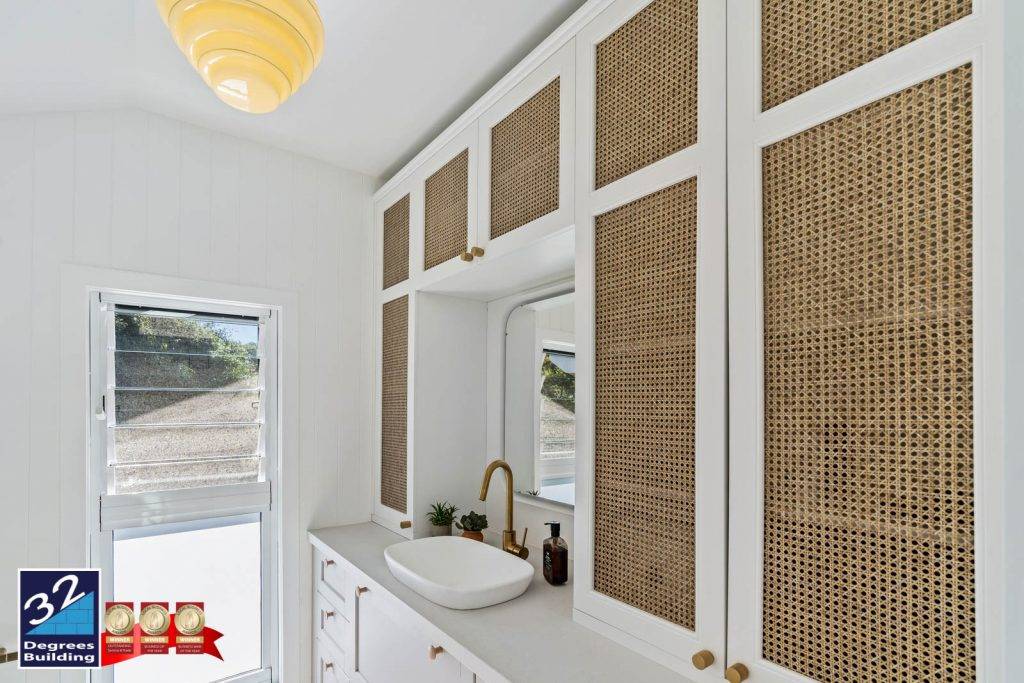
Expanding Living Space
One of the most apparent benefits of a second storey addition is the increased living space. By adding another floor, you can significantly expand the square meterage of your home, which directly translates to higher market value. This extra space can be used for additional bedrooms, bathrooms, a home office, or a family entertainment area, making your home more versatile and accommodating.
Enhancing Property Appeal
A well-executed second storey addition can dramatically improve the curb appeal of your home. Modern architectural designs, high-quality materials, and thoughtful landscaping can transform an ordinary house into a stunning, desirable property. Enhanced curb appeal not only increases your home’s value but also attracts more prospective buyers.
Upgrading Home Features
A second storey addition often involves updating other parts of the house, such as plumbing, electrical systems, and AC units. These upgrades can increase the overall efficiency and functionality of the home, making it more attractive to buyers. Modern, energy-efficient systems and appliances are highly sought after and can justify a higher asking price.
Upgrading Home Features
A second storey addition often involves updating other parts of the house, such as plumbing, electrical systems, and HVAC units. These upgrades can increase the overall efficiency and functionality of the home, making it more attractive to buyers. Modern, energy-efficient systems and appliances are highly sought after and can justify a higher asking price.
Tips for Appealing to Future Buyers
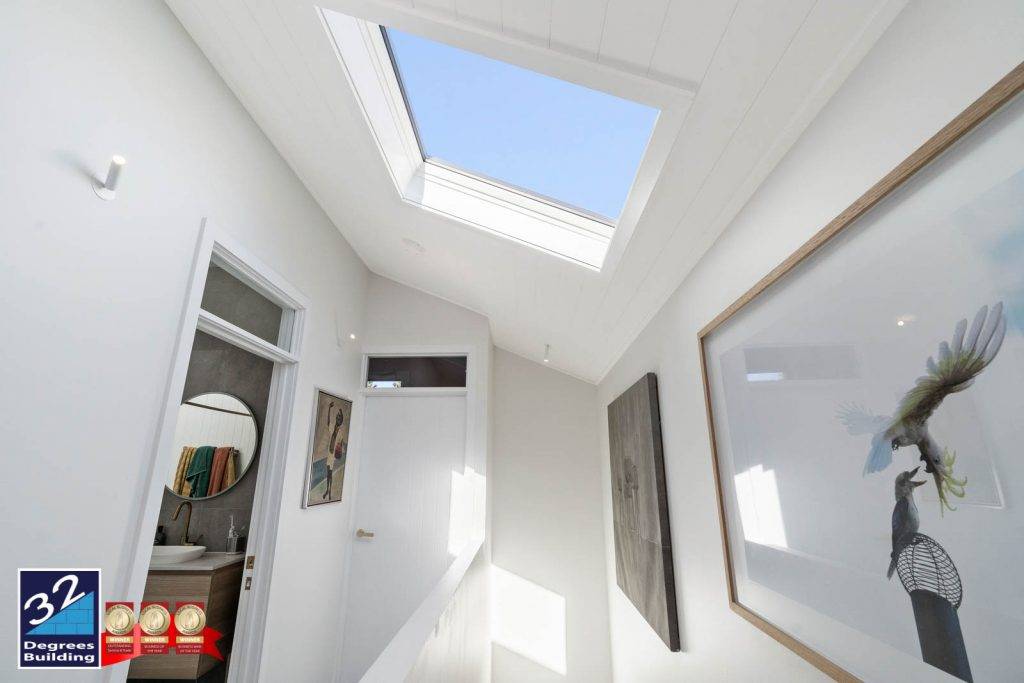
Focus on Functional Layouts
When planning your second storey addition, prioritise functionality. Design a layout that maximises space and flow, ensuring that each room serves a clear purpose. Open floor plans are particularly popular, as they create a sense of spaciousness and flexibility. Consider including multipurpose rooms that can adapt to various needs, such as a home office that can double as a guest bedroom.
Incorporate Modern Design Elements
To appeal to future buyers, incorporate modern design elements into your addition. Clean lines, neutral colour palettes, and high-quality finishes are timeless and widely appealing. Large windows and skylights can bring in natural light, creating a bright and inviting atmosphere. Including smart home features, such as automated lighting, security systems, and energy-efficient appliances, can also attract tech-savvy buyers.
Ensure Structural Integrity
A second storey addition is a major structural change, so it’s crucial to ensure the integrity of your home. Work with an experienced builder who has the team that can manage the entire process and can assess the existing foundation and make necessary reinforcements. Properly engineered additions not only enhance safety but also instil confidence in potential buyers regarding the quality of the construction.
Match the Existing Aesthetic
While a second storey addition can modernise your home, it’s important to maintain consistency with the existing aesthetic. The addition should blend seamlessly with the original structure, complementing its architectural style and materials. This cohesive look is more visually appealing and can make the addition appear as though it was part of the original design.
Prioritise Energy Efficiency
Energy-efficient homes are increasingly in demand, so prioritise sustainability in your second storey addition. Use high-quality insulation, energy-efficient windows, and sustainable building materials to reduce energy consumption. Installing solar panels or a green roof can further enhance your home’s eco-friendliness, making it more attractive to environmentally conscious buyers.
Add Desirable Amenities
Consider adding amenities that future buyers will find desirable. An additional bathroom, a walk-in closet, or a spacious master suite can significantly enhance the appeal of your home. Outdoor living spaces, such as balconies or rooftop terraces, can also add value and provide attractive features for potential buyers.
Highlight Versatility
Emphasise the versatility of the added space in your marketing materials. Showcase how the new rooms can be adapted to suit various needs, such as a growing family, a home office, or a rental unit. This flexibility can appeal to a wide range of buyers with different lifestyle needs and preferences.
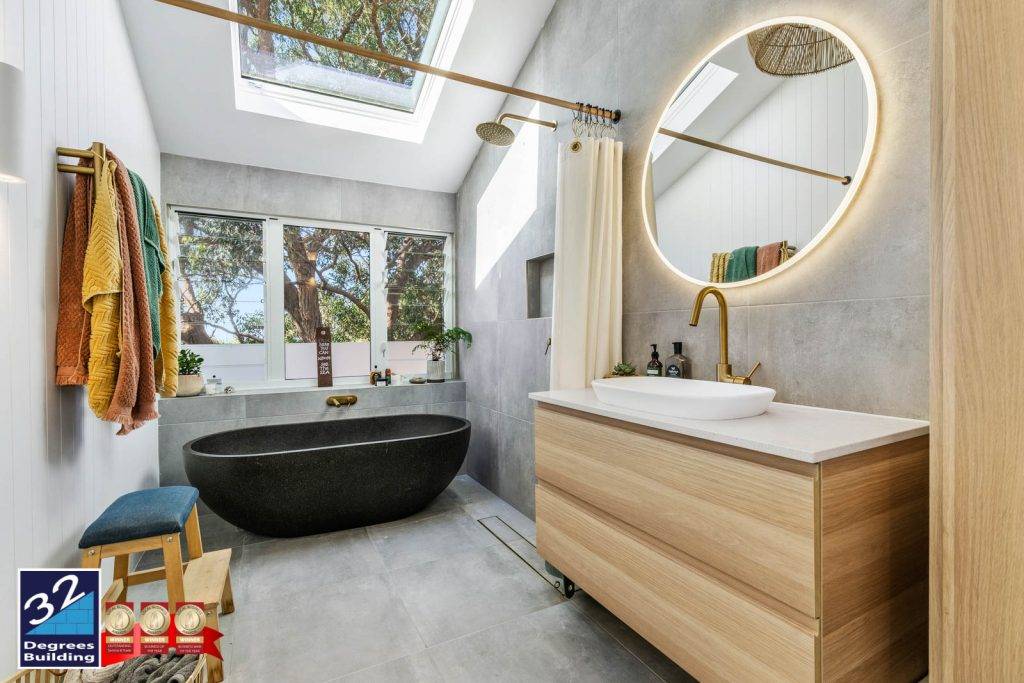
Case Study: Second Storey Addition – Lilyfield
At 32 Degrees Building, we understand that adding a second storey to your home isn’t just about creating more space; it’s about enhancing your lifestyle and maximising your property’s value. Our recent project in Lilyfield is a perfect example of how a well-executed addition can transform a home and provide a significant return on investment.
The Project: Nick’s Second Storey Addition in Lilyfield
In 2020, our client Nick purchased a property in Lilyfield for $1,400,000. While the location and overall structure of the home were ideal, Nick knew that the property had the potential for much more. He wanted to add more space to accommodate his growing family and increase the value of his investment. That’s when he approached 32 Degrees Building to explore the option of adding a second storey.


The Build: $350,000 Second Storey Addition
We collaborated with Nick to design an 80m² second storey addition, with a total build cost of $350,000. The new addition included:
- 1 master bedroom with a walk-in robe (WIR) and ensuite
- 2 additional bedrooms
- 1 bathroom
- Integrated living spaces
By carefully planning the layout, we ensured that Nick’s home not only had more room but also flowed beautifully, making the most of the additional space.
Design Elements: Vertical Weathertex Cladding and Acoustic Solutions
The second storey addition was clad with vertical Weathertex cladding (150mm EcoGroove Smooth), giving the home a sleek, modern appearance that complemented the existing structure.
Given that the home was located in a flight path area (ANEF zone), we integrated specific acoustic requirements into the build. This included acoustic glazing and Soundchek plasterboard, ensuring that the home was well-insulated from external noise, providing a peaceful environment despite its proximity to the flight path.
The Result: A Property That Doubled in Value
In 2024, just four years after completing the second storey addition, Nick’s property sold for $3,000,000 – more than double the original purchase price. The addition not only created much-needed space but also significantly increased the home’s market value. This is a clear testament to how a well-planned second storey addition can maximise the value of your property.
Conclusion: Maximise Your Home’s Value with 32 Degrees Building
Nick’s story proves that adding a second storey is not just about space – it’s a smart financial investment. With the right design, quality materials, and expert builders, you can transform your home and dramatically increase its market value.
If you’re considering a second storey addition, let 32 Degrees Building help you achieve your vision. With our award-winning, all-inclusive building services, we’re ready to turn your property into a spacious and valuable asset. Contact us today to start your project.
Building Up or Extending Out: Cost-Effective Solutions
In this article, we’ll discuss the pros and cons of both second storey additions and ground floor extensions to help you determine which option is the most affordable for your unique situation. We’ll also touch on aspects such as the return on investment, disruption during construction, and the long-term benefits of each option to give you a comprehensive understanding of what to expect.
Second Storey Additions
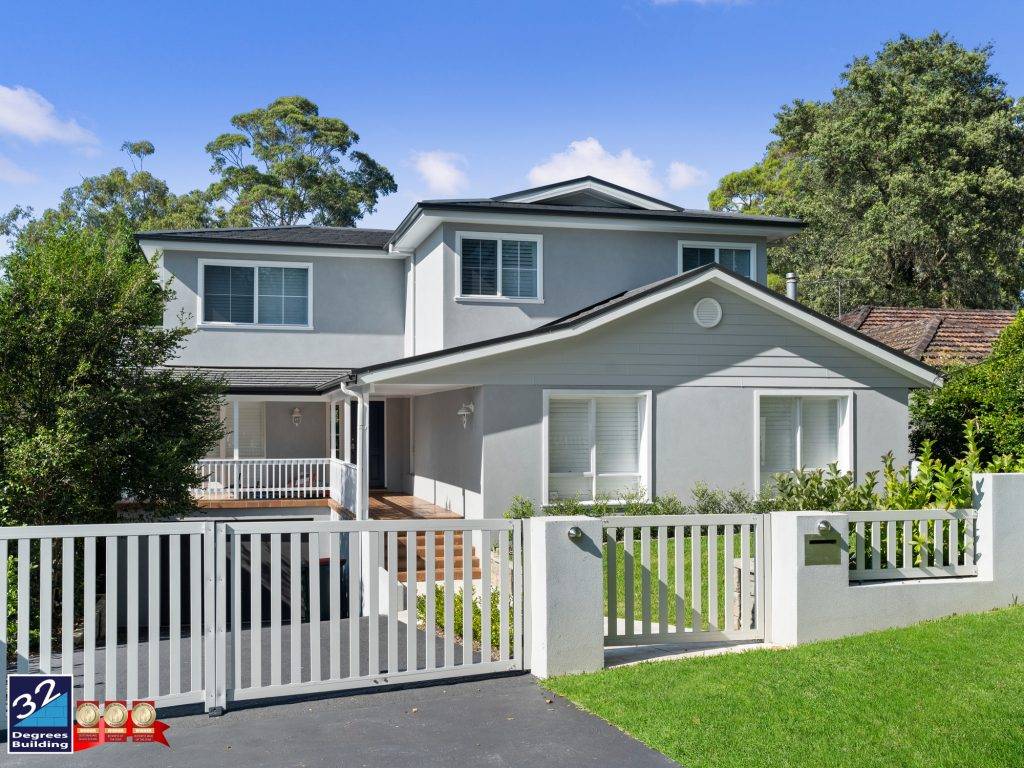
Second storey additions involve building an additional level on top of your existing home. This type of extension is popular in urban and suburban areas where land space is limited. Here are some of the factors to consider when deciding if a second storey addition is the most cost-effective option for you.
Pros of Second Storey Additions
- Maximises Land Space: If you have a small backyard or limited land space, a second storey addition is an excellent way to add more living space without sacrificing outdoor areas. It allows you to retain garden space, which can be especially valuable if you enjoy outdoor entertaining or if children or pets need room to play.
- Less Disruption: Since the work is primarily done above the ground floor, second storey additions can be less disruptive to your daily life than ground floor extensions. You can continue living in your home during the construction process, which can save you the cost and inconvenience of temporary relocation.
- More Affordable than Moving: If you love your current location and don’t want to uproot your family, a second storey addition is a more cost-effective option than moving to a larger home. Moving involves expenses like real estate commissions, moving costs, and potential renovations in a new home, which you can avoid by extending your current property.
- Potential for Better Views: By extending upwards, you may be able to take advantage of better views that were previously blocked by other buildings or trees. The elevated position can also offer increased privacy, as it is harder for passersby to see into second-floor windows.
- Confidence in a Fixed Cost: Building a second storey addition on top of your existing home is a more cost effective solution and as there aren’t any unknown costs as there is no ground floor works (eg. soil removal/excavation unknowns) it gives you the confidence of knowing your build cost – is your build cost.
Cons of Second Storey Additions
- Structural Constraints: Building a second storey addition requires careful consideration of the structural integrity of your home. If your home was built on steel frames, then it may not support a second storey addition or, you may need to reinforce the existing structure, which can significantly add to the overall cost.
- Limited Floor Plan Options: When extending upwards, the floor plan of your new level will be restricted by the layout of the existing floor below. This can limit your design options.
- Potential for Disrupting Neighbours: If you live in close proximity to your neighbours, a second storey addition may cause disruptions and inconvenience to them, leading to potential complaints and delays. Construction noise, dust, and the presence of construction equipment can all affect neighbour relations.
- Height Restrictions and Permits: Depending on your local council or municipality, there may be height restrictions that limit how high you can build. Obtaining the necessary permits for a second storey addition can be more complex and time-consuming than for ground floor extensions.
Ground Floor Extensions
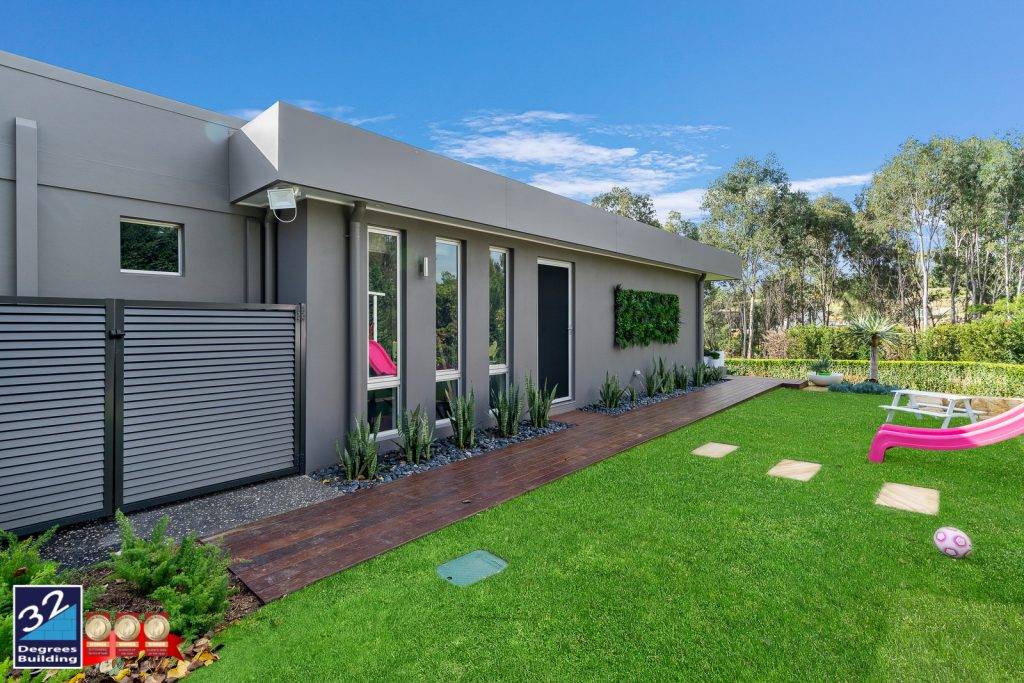
Ground floor extensions involve building outwards from your existing home. This type of extension is popular in suburban and rural areas, where land space is more readily available. Here are the pros and cons to consider when determining if a ground floor extension is the most cost-effective option for you.
Pros of Ground Floor Extensions
- Unlimited Floor Plan Options: With a ground floor extension, you have more flexibility with your floor plan since you’re not constrained by an existing structure. You can create an entirely new space that suits your needs and budget. This also allows for the addition of modern features such as open plan living areas, large windows, and bi-fold doors that open to the garden.
- Easier to Obtain Permits: In some areas, obtaining permits for a ground floor extension may be easier and less expensive than for a second storey addition. This can be due to fewer concerns about privacy and overshadowing of neighbouring properties.
- Better for Aging in Place: If you plan to live in your home as you age, a ground floor extension can provide you with a more accessible living space on one level. This is particularly beneficial for those with mobility issues or for those planning to age in place without the need for stairs.
Cons of Ground Floor Extensions
- More Disruption: Ground floor extensions can be more disruptive to your daily life since the work is being done at ground level. You may need to make alternate living arrangements during construction, which can add stress and additional costs.
- Less Yard Space: Since ground floor extensions take up more space on your property, you may have to sacrifice some outdoor areas or landscaping. This can impact your outdoor living space and may require a redesign of your garden or outdoor entertainment areas.
- More Costly: In general, ground floor extensions tend to be more expensive than second storey additions since they require more materials and labor. Foundation work can be particularly costly, especially if the ground conditions are challenging or if extensive excavation is required and some of the costs here can be unknown until construction has commenced.
- Zoning and Setback Requirements: Local zoning laws may dictate how close you can build to property lines, which can limit the size and shape of your ground floor extension. Setback requirements can significantly impact the design and feasibility of your project.
How to Determine the Most Cost-Effective Option for Your Home

When deciding whether to extend up or out, it’s essential to consider your specific circumstances and budget. Here are some factors to consider when determining the most cost-effective option for your home.
- Existing Structure: If your home is already structurally sound and can support a second storey addition, this may be the most cost-effective option. However, if you need to reinforce the existing structure, the cost of a ground floor extension may be more affordable.
- Local Building Regulations: Before deciding on a second storey addition or ground floor extension, it’s crucial to research local building regulations. Some areas may have restrictions on the height of the home or the percentage of the lot that can be built on. Compliance with these regulations can influence both the feasibility and the cost of your project.
- Size of Your Current Home: If you have a smaller home, you may get more value for your money by adding a second storey. However, if you have a larger home, a ground floor extension may be the more affordable option. The size and layout of your current home can also affect how easily it can be extended in either direction.
- Your Budget: Ultimately, your budget will play a significant role in determining whether a second storey addition or ground floor extension is the most cost-effective option for you. Consider the cost of materials, labor, and permits when making your decision. It’s also wise to include a contingency fund for unforeseen expenses that may arise during the construction process.
Other Factors to Consider
When deciding whether to extend up or out, there are some other factors to consider, besides cost. These include:
- Timeframe: If you need additional living space quickly, a ground floor extension may be the better option. Second storey additions tend to take longer to complete due to the complexity of building upwards and ensuring the existing structure can support the addition.
- Resale Value: While both second storey additions and ground floor extensions can add value to your home, it’s essential to consider which option will provide the most return on your investment. Think about the trends in your local real estate market and how future buyers might view the added space.
- Lifestyle Considerations: Your family’s lifestyle should also be a factor in the decision-making process. If you have young children or plan to grow your family, the layout and accessibility of the new space will be important. Likewise, if you entertain frequently, the flow between indoor and outdoor areas may influence your choice.
- Energy Efficiency: Extending your home provides an opportunity to improve its energy efficiency. Consider the orientation of the new addition, the potential for natural light and ventilation, and the type of insulation and windows you will use. These can all have long-term impacts on your energy costs and comfort levels.
Conclusion
When it comes to adding more living space to your home, there is no one-size-fits-all solution. The most cost-effective option for you will depend on your budget, the size and layout of your current home, and local building regulations. Consider all of these factors before making your decision, and consult with a professional builder or architect to help you determine the best option for your unique situation. With careful planning and consideration, you can successfully extend your home and create the extra space your family needs.
Second Storey Additions for Multigenerational Families
In today’s ever-changing world, it’s not uncommon to see multigenerational families living under one roof. Whether it’s to share costs, provide convenient babysitting options, or leverage the strengths of different generations, more and more families are embracing the benefits of multigenerational living. One solution that has become increasingly popular in catering to growing families is the addition of a second storey to the family home. In this blog post, we’ll explore how multigenerational families are capitalising on second storey additions to accommodate their expanding needs and enjoy a host of advantages that come with this choice.

Shared Costs:
One of the primary reasons why multigenerational families are turning to second storey additions is the significant cost savings that can be achieved. The initial investment in expanding your home may seem daunting, but when you consider the long-term benefits, it becomes a wise financial decision. By adding a second storey, families can effectively double their living space without incurring the astronomical expenses of relocating to a larger home. The costs of a second storey addition can often be shared among the family members, making it a financially sustainable solution for everyone involved.

No Need to Move:
Moving to a new home can be a stressful and expensive endeavor. It often means uprooting your family, leaving behind a familiar neighborhood, and adapting to a new environment. With a second storey addition, you can avoid all these hassles. You get to stay in the place you’ve called home, maintain your connections with the community, and preserve the memories associated with your existing house. The continuity and stability that come with not having to move are especially important for children and seniors in the family.

Built-In Babysitting:
One of the many advantages of multigenerational living is the availability of built-in babysitters. Grandparents, aunts, uncles, and older siblings can provide childcare when needed, allowing parents to take some well-deserved time for themselves. With a second storey addition, you can create a designated space for the older generation to stay comfortably while ensuring privacy and convenience for everyone. This arrangement is a win-win for both childcare and bonding among family members.
Leveraging Multigenerational Parenting Styles:
Each generation brings its unique parenting styles and experiences to the table. Multigenerational living allows for the exchange of wisdom, knowledge, and different approaches to parenting. A second storey addition can provide separate living spaces for each generation, which is vital for maintaining a sense of independence while still benefiting from the collective family support system. This dynamic can result in a holistic approach to childcare and child-rearing that enhances the well-being and development of the younger generation.
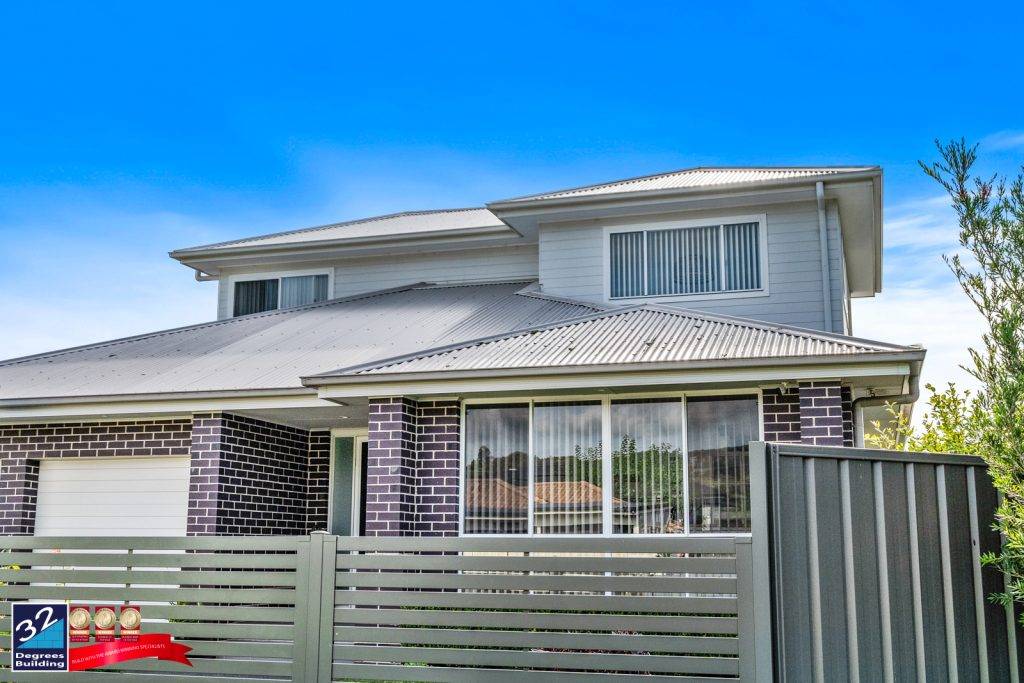
Build a Second Storey Addition today:
Multigenerational families are discovering the myriad of benefits of second storey additions in accommodating their growing households. These additions offer the advantages of shared costs, the convenience of not having to move, built-in babysitting, and the opportunity to leverage multigenerational parenting styles. By choosing to expand upward instead of outward, families can create a harmonious living environment that fosters both togetherness and individuality. If you’re part of a multigenerational family looking to capitalise on the benefits of second storey additions, it’s essential to consult with experts like 32 Degrees Building to help make your vision a reality. Embracing multigenerational living can bring joy, financial relief, and a stronger sense of unity to your family.
Preparing for Your Second Storey Addition: A Comprehensive Guide
Are you gearing up for an exciting second storey addition to your home? It’s a big project that promises a beautiful transformation of your living space. But before the construction can begin, there are some essential preparations you should make to ensure a smooth and stress-free process. In this blog post, we’ll walk you through the necessary steps to get your home ready for the upcoming second storey addition build.
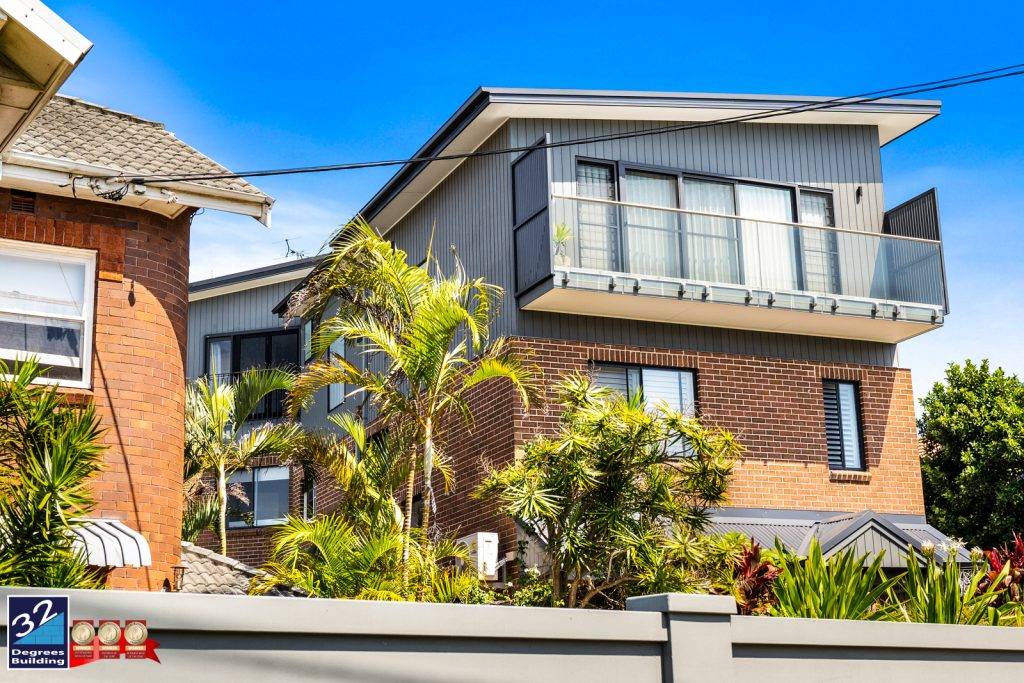
1. Clear the Ground Floor: Before the construction begins, it’s crucial to clear out your ground floor. Move any furniture, belongings, or clutter that might get in the way of the builders. Additionally, if there are any large or valuable items that you can’t relocate, cover them with tarps to protect them from dust and debris. This step is essential to provide the builders with a clean and unobstructed workspace.
2. Invest in an Air Purifier: Construction can be a dusty affair, even with the most diligent cleanup efforts. To help combat the dust generated during the second storey addition build, consider investing in an air purifier. This device will improve air quality in your home, making it more comfortable to live in during the construction process. It’s a small investment that can make a big difference in maintaining a healthy living environment. It is also to be prepared for the fact that post-construction you will still have dust settling.
3. Prepare Your Garden: If you have an outdoor garden or patio area, make sure to prepare it for the upcoming construction. Remove any garden items, such as hoses, outdoor furniture, and potted plants, and store them safely. This will ensure that your outdoor space remains free of damage and clutter during the build.
4. Scaffolding Considerations: Scaffolding will be erected around the perimeter of your home as part of the construction process. To facilitate this, it’s essential to clear the area around your house. Remove any external items, including tables, chairs, and any other outdoor equipment. This not only ensures a safe construction environment but also makes the work more efficient.
5. Protect Your Personal Items: While the builders will take every precaution to protect your home, it’s wise to safeguard your personal belongings. Remove and safely store items like televisions, artwork, and decorations. Additionally, take down any pictures or artwork hanging on your walls. These precautions will minimize the risk of damage to your cherished possessions.

Preparation is key when embarking on a second storey addition to your home. By following these essential steps, you’ll create a safe and efficient environment for the construction team, protect your belongings from dust and damage, and ensure a smoother building process. With the right preparations, your second storey addition will be a seamless and exciting home improvement project. At 32 Degrees Building, we’re dedicated to helping you transform your house into your dream home. Contact us today to discuss your project and make your vision a reality!
Elevate Your Second Storey Addition with the Perfect Windows
When planning a second storey addition to your home, windows are a crucial element to consider. Not only do they enhance the aesthetics of your space, but they also play a significant role in ensuring comfort, energy efficiency, and functionality. At 32 Degrees Building, we understand that choosing the right windows is vital for a successful project. That’s why we’ve partnered with Bradnams, a trusted leader in windows and doors, to offer an array of window options to elevate your second storey addition.
Let’s explore the different window styles available from Bradnams and how they can transform your space:
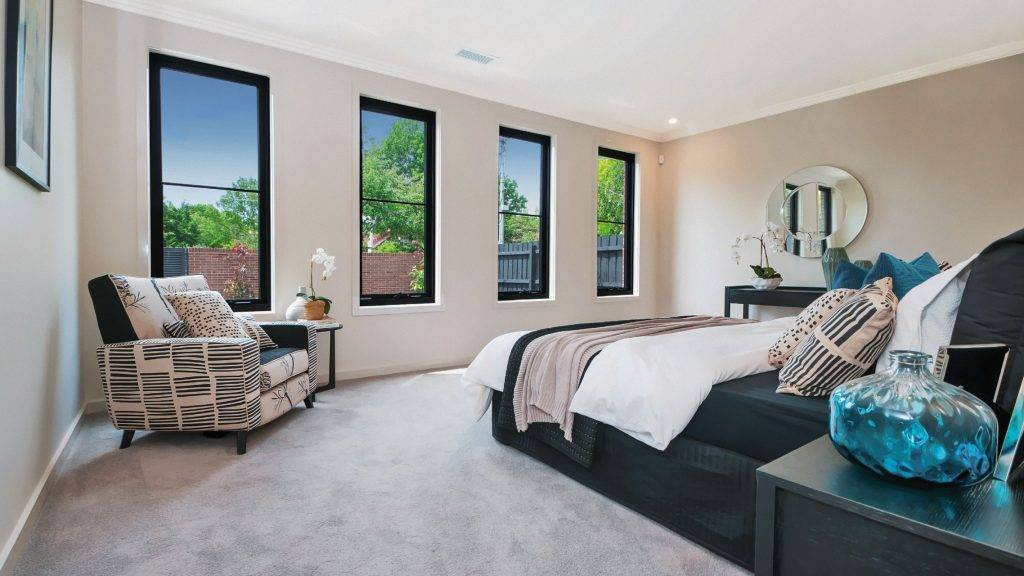
Source: Bradnams
Awning Windows: Awning windows are a practical choice for second storey additions. They open outward from the bottom, creating a canopy effect that allows fresh air to circulate while keeping rain out. These windows are ideal for bedrooms, bathrooms, or any area where privacy and ventilation are essential. Bradnams offers awning windows that are not only functional but also stylish, enhancing the overall appeal of your space.
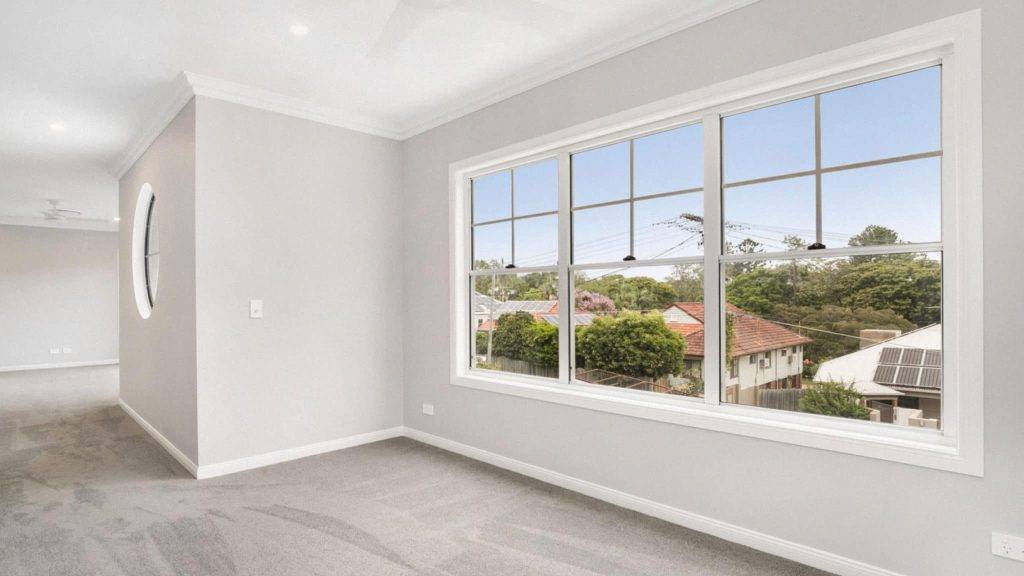
Source: Bradnams
Double-Hung Windows: Double-hung windows combine timeless elegance with versatility. They consist of two sashes that slide vertically within the frame, offering flexibility in controlling airflow and natural light. Bradnams’ double-hung windows are designed with modern features, ensuring smooth operation and energy efficiency. They are a perfect fit for a classic or contemporary second storey addition.
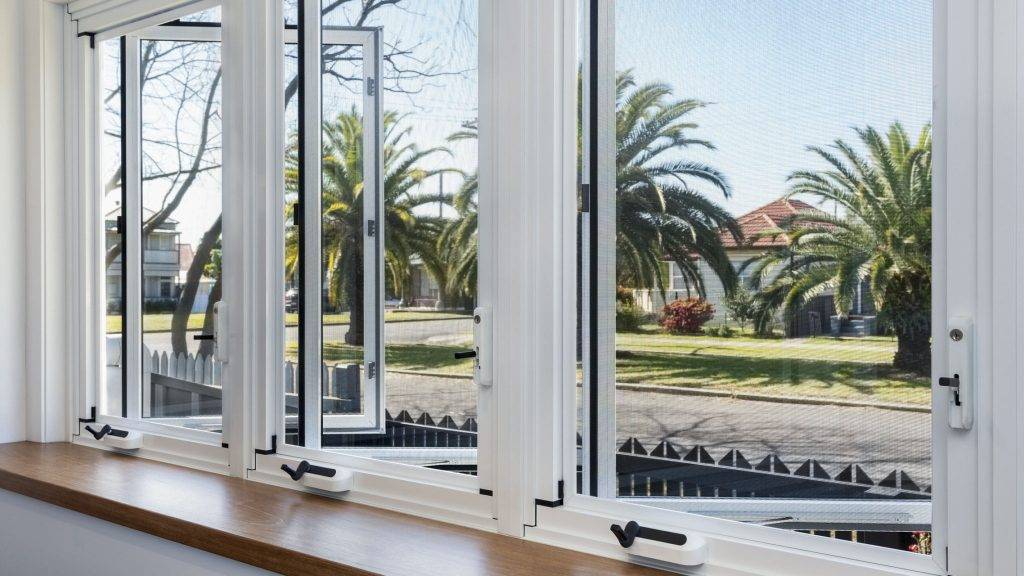
Source: Bradnams
Casement Windows: Casement windows are known for their unobstructed views and excellent ventilation. They are hinged on the side and open outward, allowing for maximum airflow. Bradnams’ casement windows are available in various sizes and configurations, making them suitable for different areas of your second storey addition.
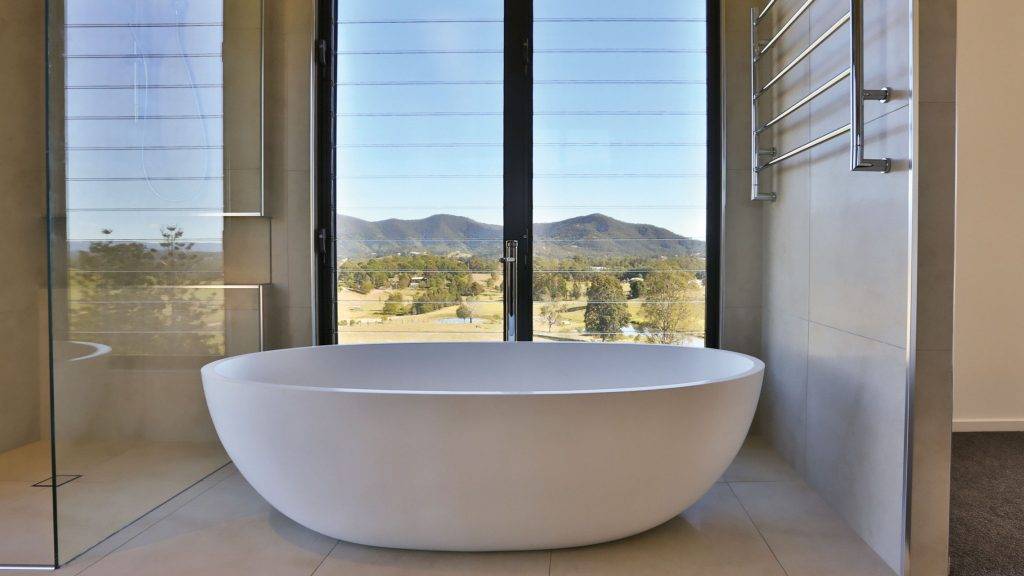
Source: Bradnams
Louvre Windows: For those looking to add a touch of sophistication to their second storey space, louvre windows are an excellent choice. These windows consist of multiple horizontal blades that can be angled to control airflow and light. Bradnams offers sleek and modern louvre window designs that not only provide functionality but also enhance the aesthetic appeal of your home.
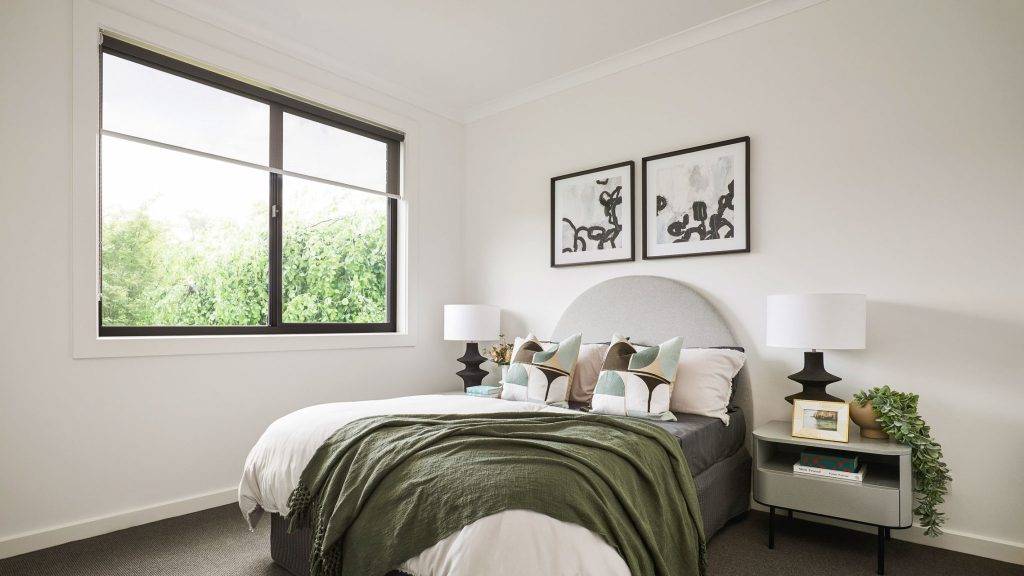
Source: Bradnams
Sliding Windows: Sliding windows are a classic option for second storey additions. They offer clean lines and unobstructed views, allowing ample natural light to flood your space. Bradnams’ sliding windows are designed with precision and offer smooth operation for years to come. They are an excellent choice for creating a bright and inviting atmosphere.

Source: Bradnams
Semi-Commercial Windows: If you’re looking to add a touch of sophistication to your second storey space, semi-commercial windows are an excellent choice. These windows combine style and functionality and are perfect for modern and sleek designs. Bradnams offers a range of semi-commercial windows that are energy-efficient and durable, ensuring your second storey addition stands the test of time.
Choosing the right windows for your second storey addition is a crucial decision, as it can significantly impact the overall look and feel of your space. With Bradnams’ high-quality windows and 32 Degrees Building’s expertise in second storey additions, you can create a harmonious and functional living space that complements your lifestyle.
Contact us today to discuss your second storey addition project, and let us help you select the perfect windows to enhance your home’s beauty and functionality.
32 Degrees Building are participating in The Push-Up Challenge
32 Degrees Building are participating in The Push Up Challenge in June to support and improve Mental Health across Australia.
Our team will be completing 3,144 push-ups across each of our projects over 23 days, putting a spotlight on the number of lives lost to suicide in 2021.
Not only are we supporting the health of our team and raising mental health awareness in the construction industry, we are contributing towards interventions and preventions for depression, anxiety and suicide. As a company we have set out to achieve a goal of raising $2,000. You can view our donation and team page here to keep track of the push-ups completed! https://www.thepushupchallenge.com.au/fundraisers/leanmeanpushingmachines
If you see the team trying to bust out their push-ups for the day, please shout out and support our team with words of encouragement!
NEW PRODUCT: Weathertex Weathergroove Fusion
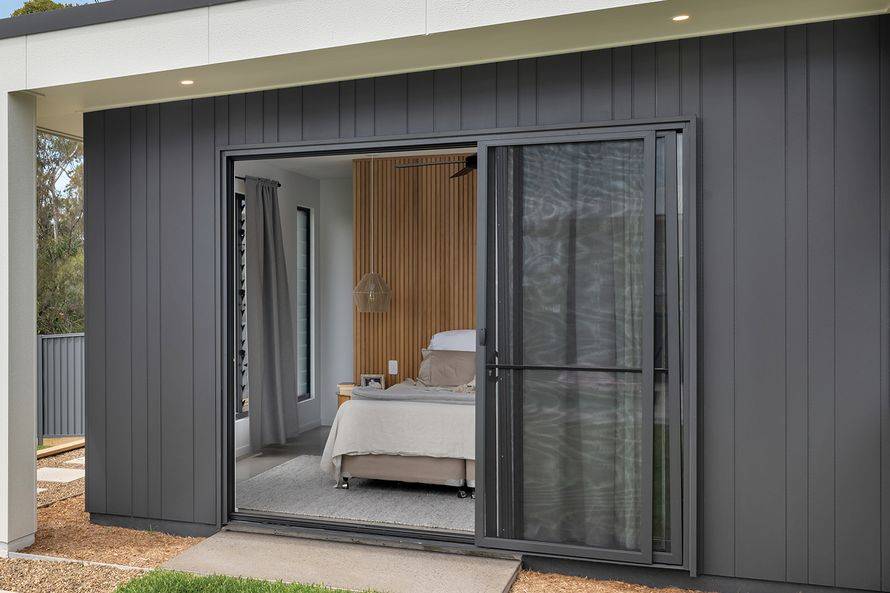
Weathergroove Fusion is a brand new, exclusively designed architectural panel that is perfect for external and internal applications. It combines the grooves from popular Weathertex profiles to create a unique style that is trendy and stylish.
Available in two finishes, Natural and Smooth, this architectural panel retains every measure of durability and safety that Weathertex is known for. This makes it the perfect solution for those looking to add a second storey to their homes.
If you are looking for a stylish and trendy solution for the cladding of your second storey addition, then look no further than Weathergroove Fusion.
Talk to our team to see how you can incorporate this into your build.
New NCC Changes – effective from 1st May 2023
Changes are coming to the National Construction Code (NCC). Starting May 1, 2023, there will be a broad range of updates to the NCC that will impact the design and construction of Second Storey Additions, Ground Floor Extension and Large Scale Renovations.
These changes are essential for ensuring that Second Storey Additions, Ground Floor Extension and Large Scale Renovations are built to the highest standards of safety, livability, and efficiency.
So, what do you need to know about the NCC changes?
The changes are being implemented in two stages, with the first stage beginning on May 1, 2023. The second stage will begin on October 1, 2023, and will include further reforms relating to livable housing, energy efficiency, and condensation management.
Some of the key changes in stage one that affect Second Storey Additions, Ground Floor Extension and Large Scale Renovations include updates to the following:
- Internal and external waterproofing
- Falls to floor wastes
- Cladding and gutters and downpipes
- Corrosion protection for steel framing
- Sanitary plumbing and drainage
- Timber framing, bracing and connections of balconies to external walls
NCC 2022 will apply to Second Storey Additions, Ground Floor Extension and Large Scale Renovations where construction approval applications are submitted from May 1, 2023, though how this applies can vary from state to state.
Builders you can trust
At 32 Degrees Building, we take great pride in our ability to deliver exceptional building solutions to our clients. We specialise in Second Storey Additions, Ground Floor Extensions, and Large Scale Renovations, and we are here to stay.
Our well-run operations and capable management team are two key reasons we have become a trusted name in the industry. We understand the importance of clear communication, attention to detail, and a commitment to excellence. Our management team comprises experienced professionals with a wealth of knowledge and expertise in the industry. They are passionate about their work and are always looking for ways to improve our processes and deliver better results to our clients.
We are also proud to be a profitable and financially stable company. Our solid financial strength means that we have the resources and stability to continue operating through tough economic times, which means that our clients can trust us to complete their projects no matter what.
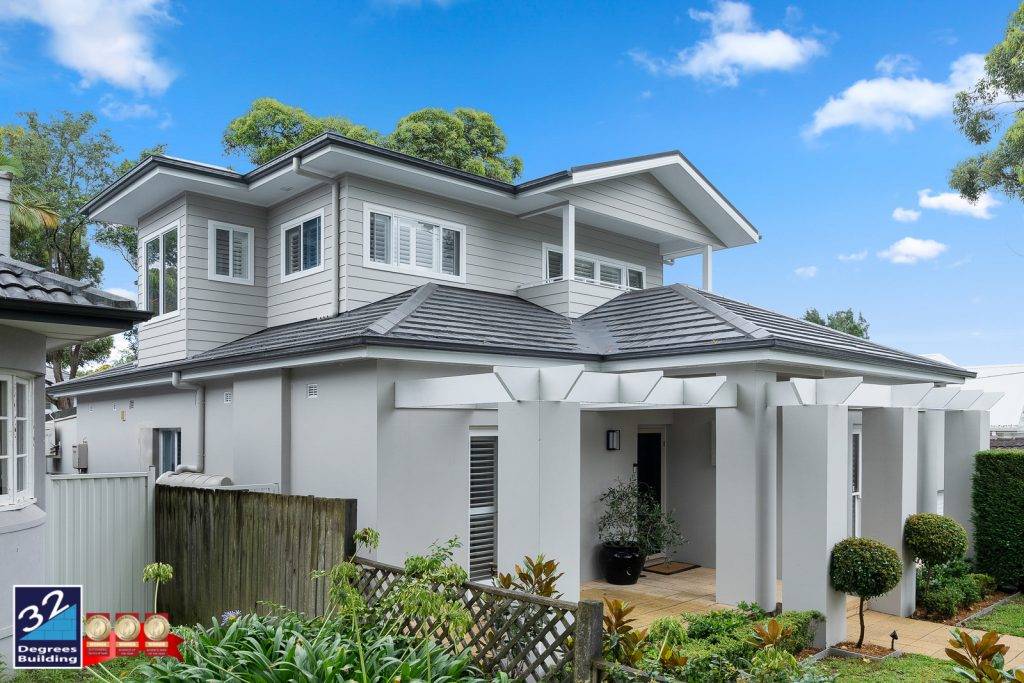
We are the experts in Second Storey Additions, Ground Floor Extensions, and Large Scale Renovations. We understand the unique challenges that these projects can present, and we have the skills and expertise to ensure that the end result is exactly what our clients envision. We are committed to delivering a stress-free and successful project from the initial consultation to the final handover.
At 32 Degrees Building, we are committed to excellence in everything we do. Our dedication to quality workmanship, attention to detail, and exceptional customer service set us apart from our competitors. Whether you want to add a second storey to your home, extend your ground floor, or undertake a large-scale renovation project, we are the team you can trust.
If you’re looking for a reliable and trusted builder for your next Second Storey Addition, Ground Floor Extension, or Large Scale Renovation project, look no further than 32 Degrees Building. Our well-run operations, capable management team, and solid financial strength make us the perfect choice for your project. Contact us today to learn more about our services and how we can help you achieve your building goals.
How to make your home energy efficient
Adding a second storey or ground floor extension to your home is a great way to accommodate for a growing family or to create additional living space.
Are you considering a second storey addition or ground floor extension to your home, but concerned about the impact it could have on your energy consumption? Fortunately, with today’s technology and design practices, creating an energy-efficient home is easier than ever before. In this blog post, we’ll explore some ways to make your home addition both eco-friendly and cost-effective.

Heating and Cooling
For heating and cooling, the first thing you can do is choose a system that works with your specific needs. Options include split-system air conditioners, wall-mounted heating, and cooling units or ceiling fans. Consider natural gas, electric, solar power or hydronic heating to reduce your heating and cooling bills over time. Another way to reduce energy consumption is by using insulation, which will help to keep your home warm in the winter and cool in the summer. You can also install double-glazed or Low-E glazed windows to help prevent heat loss during colder months.
Hot Water Systems
Your hot water system is another major contributor to energy usage. Consider installing a solar hot water system to lower energy bills and reduce your carbon footprint. This system works by using solar panels to heat your water, which can then be stored in a tank for later use. An electric heat pump system is also a good option.
Lighting
Choosing the right lighting for your home will provide energy savings long-term. LED lights use far less energy and last longer than traditional halogens. They are also safe, reliable and can be used both indoors and outdoors.
Appliances and Technology
Many appliances and devices in our homes use significant amounts of electricity. Choosing energy-efficient options when shopping for new appliances like a fridge, dishwasher, washing machine or air-conditioner is a great way to reduce power usage. Even switching off appliances when not in use can make a significant difference to your energy bill.
Connected Home
A connected home is a smart home that uses technology to manage energy use. For example, you can connect your heating and cooling systems to a smart thermostat, allowing you to automate your home’s temperature settings. This means your home will always be at the perfect temperature and energy will be used efficiently as the system will learn your preferences.
Solar Panel/Photovoltaic Systems
A photovoltaic system is a type of solar panel that generates electricity when sunlight hits the panels. Once installed, you can power your home using energy from the sun, saving you money on electricity bills and reducing your environmental impact.
Batteries
Batteries are a great way to store excess energy and utilise it when needed, making your home entirely self-sufficient. Battery options like Tesla’s Powerwall allow you to store electricity generated by solar panels throughout the day for use at night when electricity prices are higher.
Rainwater
Incorporating a rainwater tank into your second storey addition or ground floor extension is an excellent way to increase your home’s energy efficiency. Instead of letting stormwater run off your roof, a rainwater tank can collect this water and store it for later use, reducing your reliance on mains water. You can then use this water for watering the garden or flushing toilets, saving you money on expensive water bills. In addition to its practical uses, using rainwater tanks is an eco-friendly solution that reduces your home’s environmental impact, making it a worthwhile investment in the long run.
Let us help you build an energy efficient Addition or Extension
Making your Second Storey Addition or Ground Floor Extension energy efficient can help reduce your environmental impact and save you money on energy bills. With a range of options available, from insulation and efficient lighting to renewable energy systems, there’s never been a better time to create an eco-friendly home addition or extension. No matter what your budget or needs, there are measures you can take to create a home that is sustainable, comfortable and cost-effective.
At 32 Degrees Building, we can help you along the journey toward an energy-efficient home addition or extension.
Feel free to contact us to learn more!
